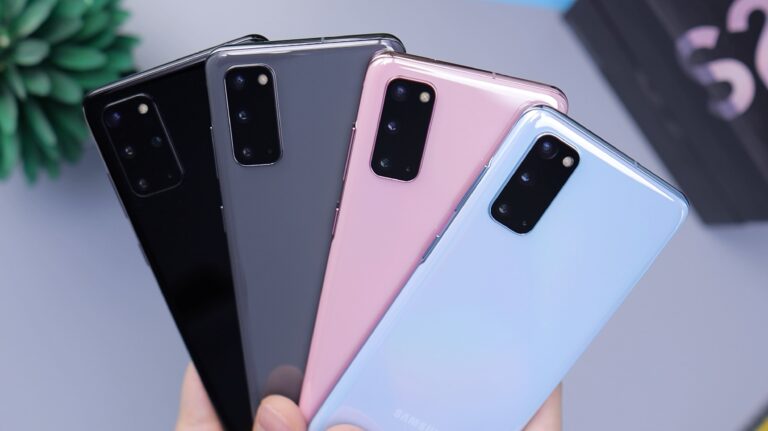Choosing the best smartphone is a tough decision, especially if you’re not familiar with the latest tech.
There are so many options out there, and they all seem to do the same thing. How do you know which one is right for you? We’ve put together a list of things to keep in mind when buying your next phone.
Table of Contents
8 things to consider when choosing the best smartphone for your needs
Here is a list to things to keep in mind when choosing the best smartphone.
1. Camera
When it comes to cameras, you’ll want to consider the following:
- resolution: how many megapixels does the camera have?
- lens type: is it a single lens or a dual lens? If so, what kind of lenses are they? Telephoto and wide-angle? Optical zoom or digital zoom only (with no optical assistance)?
- camera features: does the phone come with special camera features like bokeh effects or portrait selfies that can be done with just one click of a button on your phone?
2. Battery life
The battery life of a smartphone is one of its most important features. A phone with a good battery life will last all day, but one with a poor battery may require charging several times during the day.
The amount of time you can use your phone before it runs out of power depends on several factors, including screen size and brightness, apps running in the background, and whether or not you have WiFi turned on. You should also keep in mind that some apps use more power than others (e.g., streaming video vs. checking email).
The best way to measure how long your phone’s battery lasts is by using its built-in usage monitor or an app like Battery Doctor (iOS) or GO Battery Saver & Widgets (Android). If you don’t want to measure yourself, look for phones with large batteries. This will ensure you won’t run out of power when traveling somewhere remote where there isn’t an outlet nearby.
3. Storage
Storage is the amount of space on your phone. It can affect performance, but it also represents how much data you can store on your device. For example, if you take many photos and videos, storage will be important to you.
4. 4G or 5G
Another thing to consider when buying a new smartphone is whether to go for 4G or 5G.
4G is the most common form of mobile internet and allows you to download web pages, stream videos, and even make voice calls.
5G is more advanced, but it’s still not widely available. The fastest speeds are only available in certain cities, and you’ll need to be in a 5G network range. If you can’t use 5G right now, there’s no point paying extra for it.
5. Speed
Speed is a measure of how quickly your device can process data. It’s measured in gigahertz (GHz); the higher the speed, the faster it can process information. This is important for apps that require a lot of processing power, like games or video editing software.
If you’re looking for a phone with good performance, look for one with at least 2GB of RAM; this will ensure that your phone won’t slow down even when running multiple apps at once.
6. Speakers
You’ll also want to pay attention to the speaker quality. While you don’t have to have a pair of speakers that can replace your home stereo system, it’s nice if they at least sound decent. Other things you should look for are loudness, clarity, and bass level.
- speaker loudness: most smartphones will be able to play music at around 50 percent volume without distorting too much, so make sure your phone can reach this level without distortion before buying it (and preferably above).
- speaker quality: When evaluating smartphone speakers’ quality, there are several things you should check: however, consumers often overlook general audio quality, focusing primarily on visual performance, such as screen resolution or display size (which affects visual clarity while watching movies/videos).
7. Screen size and brightness
While most of the time, you’ll be staring at the same screen size all day; it’s worth noting that bigger is better when it comes to smartphones. The more pixels you have on your screen, the sharper and clearer everything looks.
A good rule of thumb is that if you’re planning on doing a lot of gaming or watching videos on your smartphone, look for a screen size over 5 inches.
8. Operating system
Another thing to consider is the operating system (OS). iOS and Android Phones are the most popular smartphone operating systems.
Each has its strengths. For example, Apple’s iOS has a reputation for being more stable than Android. However, Google’s Android operating system has more apps available and tends to integrate better with other products, such as Google services.
The iPhone is probably your best bet if you’re looking for something easy to use but still offers flexibility. However, if you want more control over your device and don’t mind spending time tweaking it, then Android may be better suited to your needs.
The best smartphones allow for fast processing times and performance
If you’re in the market for the best smartphone for your needs, make sure to consider which of the above features are most important to you.
By narrowing down your preferences and choosing a device that fits all of them, you’ll be able to enjoy a seamless experience that allows for faster processing times and improved performance overall.
Read also: Do small smartphones still exist? Here are 3 under 5 inches and 100% functional












